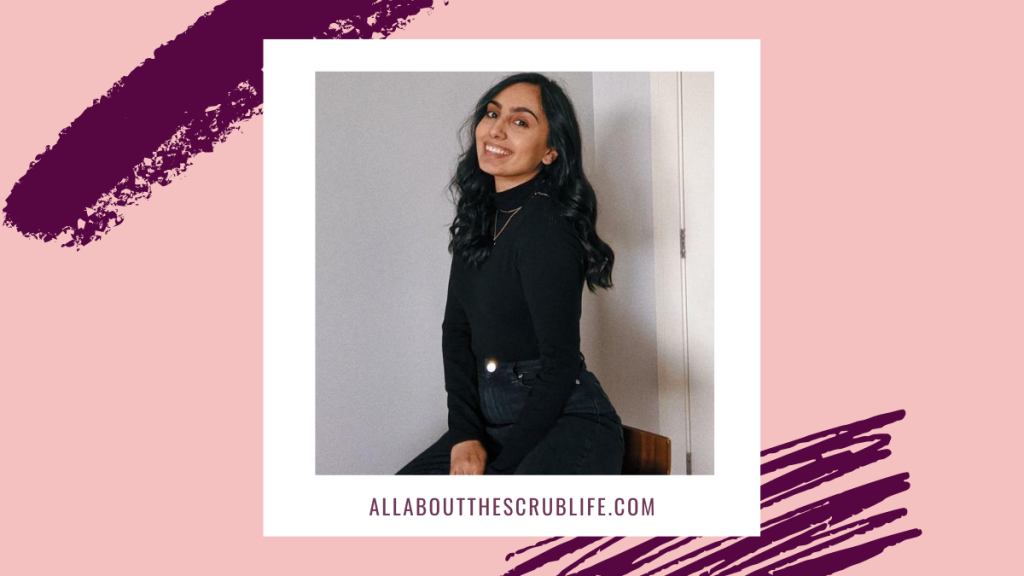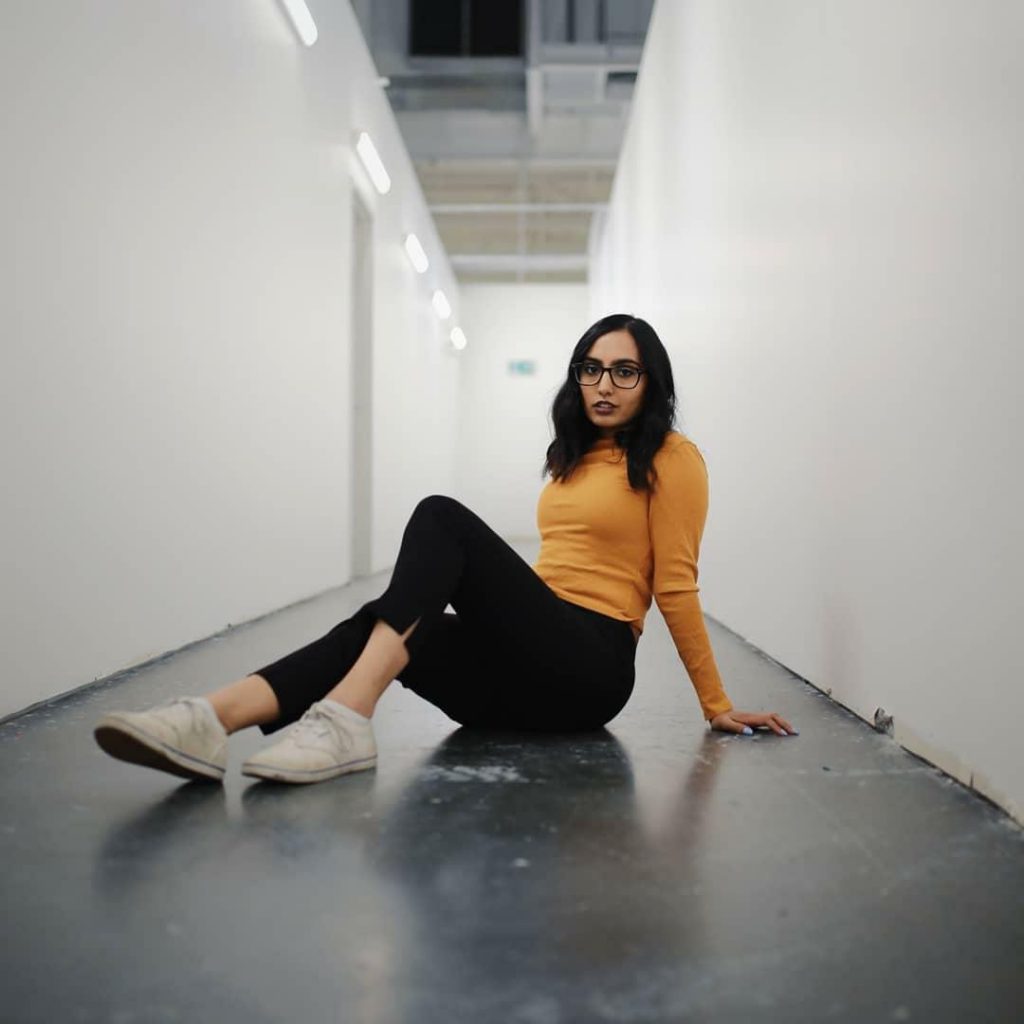Hey guys! I’m back with another installation of my Public Health Series which is geared towards introducing public health professionals from all walks of life. I must admit this series has definitely been neglected in the last couple of months and that is as a result of what has been happening in our world. Everyone has been trying to adapt and navigate through this time, but I am happy to say that “Public Health Spotlight” is BACK! Since my last post, I must say that I’ve met so many different people in this field and have made connections over on Instagram. Keep on reading to meet today’s awesome feature!

Tell us a little bit about yourself.
My name is Kaman and I currently work as a Relationship and Sexual Health Educator. I also just finished up my second degree in Public Health at the University of Lethbridge in Canada. I am passionate about public health and all that it has to offer, and I can spend countless hours talking about it. I run an Instagram account that is dedicated to my public health journey, including my bachelor’s degree and hopefully my graduate degree as well!
Other than that, I am a burrito connoisseur, the host of the podcast called the Brown Girl Project, and a photographer.
What got you interested in your professional field? How has your upbringing influenced your career aspirations?
When I was younger, I wanted to go to medical school. When I went into my first degree my heart was set on medical school, but I later realized that it might not be for me. I still love science and learning about the human body, but as I kept working through my degree, I felt like something was missing. I later learned that I was missing the real-life applications. How did my degree apply to the real world?
When I took my medical microbiology class, that touched on a lot of public health concepts I felt like a new door had opened. I did more research on the field of public health and realized that this was what I was missing. After I completed my first degree, I had applied to a master’s program in public health but did not get in. Instead of doing nothing about it, I ended up getting a second degree in public health. On top of that I decided to also work in the field by teaching students from grade 7-12 the sexual health curriculum in Alberta, Canada. After working in this field for almost two years I know I have made the right decision about my future, because everything seems to click with it.
Where you knowledgeable of the public health field before college (or post-high school)?
I certainly did not know about public health while I was in high school, and I only found out about this professional field after my third year in my first degree at university.
What does a typical workday look like for someone in your position (or who has your responsibilities)?
Typically, I wake up and get ready to teach at a school. Every week Educators go to a new school and spend 4 days with each class (Monday to Thursday). Every day, we cover a new topic. The topics that our comprehensive sexual health curriculum covers are; sexuality, orientation, gender, sex, sexually transmitted infections, birth control, consent, anatomy, healthy relationships, etc. Every class is very different, and sometimes I find myself having deep conversations with my classes about how race plays a role in our sexuality. I am usually teaching multiple classes a day, I think the most I had was 5! Once I finish teaching for the day I then have to plan my lessons for the next day, and answer question box questions. I find those to be a valuable teaching tool because they allow the students to really ask what they need to know.
Do you typically work individually or in a group? Which do you prefer?
I typically work alone, but sometimes when we have the opportunity to co-facilitate a class, we can do that as well. I honestly don’t mind either! I feel like when I teach a class by myself, I have more control over what I get to do, and how I get to deliver the information. When I co-facilitate a class with a colleague it’s nice because it takes the pressure off you to remember every single detail! I have a lot of respect for teachers who do this job every day!
In what ways does your work contribute to the field of public health?
I think we can all agree and say that
the sexual health curriculum across the world needs to be updated. At my place of work, I think we are always ahead of the game. We spend so much time researching what our curriculum can look like, and what students need to know about their sexual health. Sexual health intersects with all aspects of our lives whether you believe it or not. It can impact so many things, which is why it is important that people are aware of it and understand it.
My job is to educate students on sexual health topics and to hope that they will take the lessons and make healthier decisions about their bodies. Not only does our curriculum talk about sexual health and relationships, but we often find ourselves having conversations about how this topic influences our policies, healthcare system, relationships, and what that looks like in our communities and globally as well.
How do you think your schooling/training prepared you for your current position?
My first degree allowed me to have a deep understanding of the human body, therefore, I can always answer questions that are rooted in the mechanics of our bodies. I often do get asked a lot of questions about the reproductive system, and whether their bodies are functioning properly. Students are also curious about the mechanisms behind infections, so I can speak to that too, especially if they are looking for a very science-based answer.
As for my public health degree this has helped me more professionally. Throughout my degree I took courses on how to appropriately deliver health information to the general population. Further, my degree also allowed me to work with my organization to flesh out our curriculum to make sure we are meeting health promotion targets and strategies. We are constantly evaluating our curriculum!
Were there challenges you faced to get where you are currently?
The biggest challenge I have faced personally is overcoming the imposter syndrome. This has haunted me my entire life, and I can’t say to this day that I have overcome this challenge either. It is hard to move forward when you believe that you are not good enough for something, but it is so important that we put that thought away. In the past, I used to stop myself from doing things just because I thought I wasn’t good enough. I think that when we have that thought in the back of our mind it does impact our performance. It stops us from applying to that school, applying to that job, putting in our greatest effort into assignments and exams.
You have to be your biggest cheerleader! There is no one else in this world who is going to support you the most besides you. You are the one who chooses to wake up every day. You choose to go to work/school. You choose to put effort into your work. You choose to work hard. You choose to believe in yourself. How our mind sees itself is very important, and it plays a large role in our success.
What has been a rewarding experience during your academic or professional journey?
In my academic journey, a rewarding experience that I have had is having a conversation with one of my public health professors about how she sees a future for me in this field. For me, that experience was rewarding and validating because it did help me feel like I belonged.
In my professional journey, I would say the most rewarding experiences that I have had is when my students come up to me after class to chat more. I love having more in-depth conversations about sexual health with them, and often I have students confide in me too.
What are some skills or experiences that undergraduates in Public Health should have going into your line of work?
In order to work as a Relationship and Sexual Health Educator, I think it is important to be passionate about the topic. This area of health can be difficult especially when things like sexual assault are touched upon, and it is important that you have a support system behind you. Your passion will help you move forward with your journey. Second, it is helpful if you have facilitation skills and if you have worked with youth before.
What job, grad school, or fellowship search tips do you have for undergraduates?
For a job, my biggest tip is to use google to search for a job. I personally use Indeed to find all sorts of jobs in public health. Even though I do have a job, and I am currently not in the market to look for another one, I still search for jobs often to see what is available.
For grad school, my biggest tip is to make a list of schools that you will be interested in. I think once you have a long list narrow that down to your top 5! Look at schools that fit what you want to do with your life. For example, if you want to be an epidemiologist in the future, then look at schools that have great epi programs. Don’t just look at the prestige of the school because it doesn’t matter.
What interviewing tips do you have for undergraduates and the young professional?
If you are someone who gets nervous about interviews I would suggest practicing in front of a mirror. I would also do some research about the organization you are looking to apply to because then you can align your answers with their mission and vision.
Lastly, I always found that if I made my interviewer laugh I always got the job.
What advice do you have for undergraduates during their first month of working with a new employer?
Ask questions! Don’t try to pretend like you know everything because that can cost you. When someone is using an acronym, you haven’t heard before ask what that means. By asking questions you are showing that you are a valuable employee who wants to learn and grow within the position.
How important is work-life balance to you?
Over the years work-life balance has become important to me. I think it is important that when you’re not working or doing schoolwork you are taking the time to relax. It is so important to take the time to reset yourself before diving into something else because burn out is real.
What is something related to public health that you would like to see improved upon over the next decade?
Over the next decade, I would like to see the field of public health taking seriously. I do think it is a field that is undermined often, and it is because it combines so many different fields into one. Currently, with COVID-19, we are seeing that when governments who do not invest a lot into their public health infrastructure are currently collapsing under the pressure. Healthcare is important.
Okay, this is the last question to wrap up our interview. This is the most important question, so think long and hard before answering.
A restaurant has named a dish after you; what is it and why?
A burrito, because it would only be fitting for a burrito connoisseur.
Be sure to keep up with Kaman on Instagram
Until next time!


Comments +